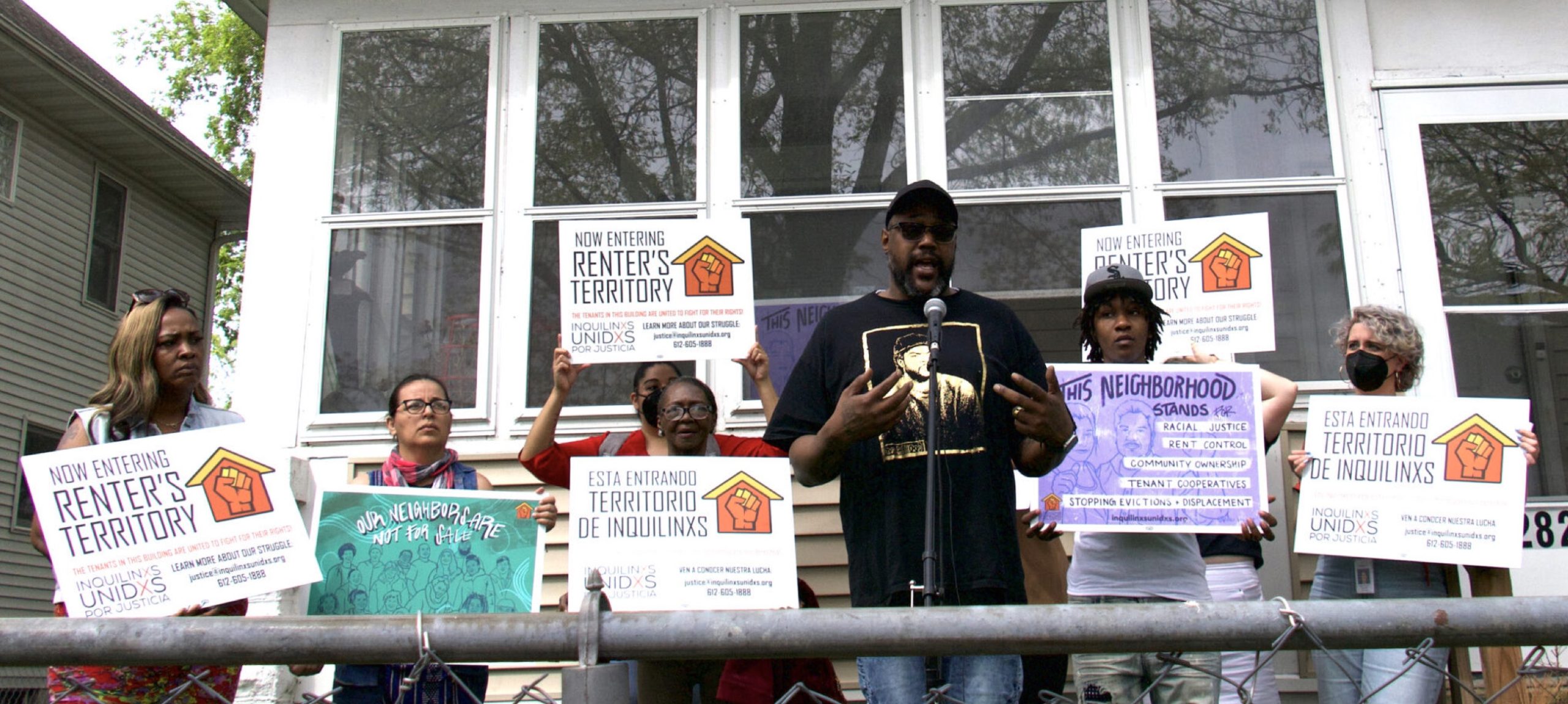
Report documents corporate landlord’s extraction of wealth: Through home appreciation and rent collection, Progress Residential has extracted over $40 million from North Minneapolis
July 12, 2023
Progress Residential, the largest Single Family Rental company in the U.S. has extracted over $40 million in wealth from the North Minneapolis community, according to a new report by the Private Equity Stakeholder Project (PESP) and Inquilinxs Unidxs Por Justicia/United Renters for Justice.
NBC highlighted the report findings in its recent story “These tenants fought one of America’s largest corporate landlords — and scored some wins”:
Progress’s operations in Minneapolis have been lucrative. The report says that the company’s purchases of these modest homes have prevented first-time and lower-income homebuyers from being able to buy them. Now that the North Minneapolis properties purchased by Progress and affiliates have more than doubled in value, the report said, wealth creation that could have benefited residents in the neighborhood instead went to the wealthy firm.
Progress Residential currently owns more than 220 single family rental homes in the historically Black neighborhoods of North Minneapolis. Most of the homes, which were purchased by Progress Residential’s subsidiary Front Yard Residential, were in the starter home range that would have been ideal for first-time homebuyers.
According to the report:
- Properties purchased by Progress and Front Yard Residential in North Minneapolis have, on average, more than doubled in value,meaning that Progress and Front Yard Residential have extracted an estimated total of $24.9 million in North Minneapolis.
- Instead of homeowners making mortgage payments that build equity and provide stability for themselves and their families, tenants of Progress Residential and Front Yard Residential have been making rent payments. Through collection of monthly rents, Progress and its subsidiary Front Yard Residential have extracted an estimated total of $16.7 million in North Minneapolis.
“This is a huge amount of money, and North Minneapolis is a very small part of Progress Residential’s very large rental portfolio,” said Jordan Ash of the Private Equity Stakeholder Project, the author of the report. “If we think about this on a national scale, we’re talking about a mass transfer of wealth from the poor to the ultra-rich.”
Progress Residential, which owns more than 90,000 single family rental homes in the U.S. was formed by the private equity firm Pretium Partners. According to the report, Pretium’s founder and CEO Don Mullen is a former Goldman Sachs executive who is famous for leading Goldman to bet against the mortgage market during the Global Financial Crisis of 2007. Mullen capitalized even further on this crisis by buying up tens of thousands of foreclosed homes and renting them to families who had lost their homes or who could no longer qualify for a mortgage due to tightened lending practices.
“I continue to see major issues in my home. That’s even after Front Yard Residential, managed by Progress Residential, signed a set of agreements it must meet to continue operating in Minneapolis. According to the signed agreements, I should be able to call a 24/7 maintenance telephone line, yet I know nothing of this telephone line. I’m supposed to receive mowing, shoveling, and rubbish removal. Yet today I have someone coming out to do my yard maintenance. I will have to pay this person out of my own pocket because Progress Residential hasn’t kept their promise,” said Takilah, a Progress Residential tenant in Minneapolis.
Progress Residential tenants in North Minneapolis have been organizing with Inquilinxs Unidxs Por Justicia/ United Renters for Justice for safe and dignified housing after going years without necessary repairs for issues related to lead paint, black mold, pest infestations, flooding,and electrical hazards. Many tenants have won monetary compensation, repairs, and opportunities to move into different Progress Residential homes through actions such as protests at local Progress Residential offices, engaging with investors, and paying their rent to the court via an escrow account rather than to Progress. While tenants are experiencing clear successes in light of their collective efforts, they continue organizing toward a broader systemic vision where they have a permanent say in their housing and their neighborhoods.
